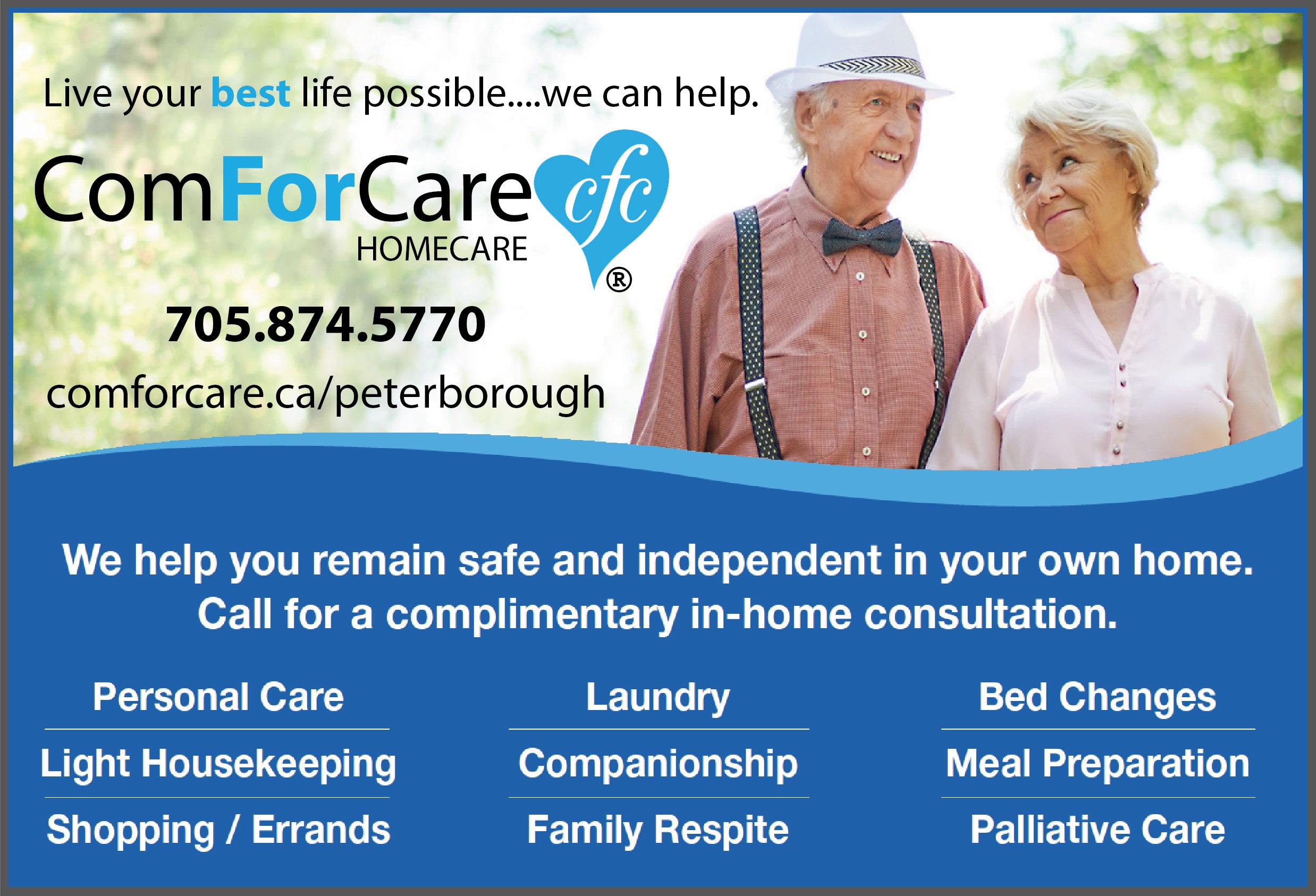
4 minute read
NAVIGATING MEMORY LOSS
A Roadmap
By Dr. K. Jennifer Ingram, MD FRCPC Founder and Medical Director Kawartha Centre - Redefining Healthy Aging
There is usually a moment, an incident, or an event when we suddenly recognize that the issues of short-term memory loss in a friend or family member are a definite problem.
I hear the stories. A gourmet cook asking three times if you would like chicken for dinner, then serving hamburgers. Or an accountant racking up credit card debt on lost and unpaid bills. A friend forgetting the details of recent celebrations. These are lightbulb moments. You know it’s not dad’s hearing loss or mom’s sadness over her friend’s death. You know it is more. We are often taken aback by these incidents, yet the person with the memory challenges may be unconcerned or become defensive at the suggestion of a problem. Is this situation familiar?
As outlined in “Navigating Memory Loss” (A Taste of the Kawarthas, Spring/Summer 2021), this is the time to turn to your GP for a reliable diagnosis or a referral to a memory service, geriatrician, or neurologist. A medical diagnosis is the beginning of a journey. As friends and care partners, you are the navigators of the future. Learning what to expect and when to change tactics will become day-to-day considerations. This article provides a brief roadmap, and a nudge toward upcoming concerns that require consideration now.
We recognize four stages in the usual progression of Alzheimer’s disease – mild, moderate, severe, and very severe - each lasting about 2-3 years. There are predictable signs in each of these stages that, when observed, should be communicated to your medical team.
In the first or mild stage, difficulties are noticed in some household activities such as cooking, shopping, paying bills, or organizing medications. These may be poorly performed or need guidance to complete. Initially you will notice that reminders are required. Over time, all these activities become challenging. During this stage, driving will also become precarious.
In the second or moderate stage, issues with personal care gradually creep in. Shower frequency decreases, clothes are worn repeatedly while stained. You may be shocked by the seeming indifference to these issues shown by your once meticulous family member or friend. Simple cues such as a verbal reminder in the moment, or practical cues such as laying out clothes the night before usually work to address these issues. “Today is your spa day! Your bath is waiting, Mom.” is likely to reap good results. “Why didn’t you have a shower today, Dad? You haven’t had a shower all week.” will generally lead to upset feelings and distress for all.
Language deficits and memory loss are a toxic mix in dementia. Mentioning lack of attention to personal care can be perceived as shaming and often backfires into an argument, escalating the problem. If you continue to feel angry and frustrated, keep in mind that these interactions are quickly forgotten by the memory impaired individual - a good lesson for us all.
The third stage of Alzheimer’s disease, the severe stage, is identified when the tactic of carefully crafted cues no longer works. Getting ready for the day seems to take forever and you find your dad struggling with both legs in the same pant leg, or your mom donning multiple layers of T-shirts. You know verbal cues are no longer enough and hands-on care is needed. Gradually over the next 3 years, assistance in ALL aspects of dressing, showering,and hygiene become a necessity. Help with toileting may also be required.
The need for hands-on help may exceed what you are able or prepared to provide – physically, mentally, or emotionally. Don’t wait until things are severe to think about these difficult choices. Use your Alzheimer Society support groups as a sounding board for timing. In-home help and long-term care options should be discussed with your GP and care team. With waiting lists of 2-10 years for government funded long term care, and with an erratic homecare system (also government funded), careful and mindful planning is required. I advise those with the financial means to hire private in-home companions, PSWs, care assistants, and housekeepers in the earliest stages. There is comfort in familiarity.
Others will need to depend on friends and family while awaiting publicly funded in-home care or longterm care options. Plan ahead.
Looking to the future of this disease is hard but necessary. Knowing how to navigate the stages of the disease through our disjointed healthcare system requires care partners to be proactive. Knowing what to expect may also give you the gift of living in the moment and appreciating the past.
Enjoy and document the good times.
Resources for Caregivers:
Alzheimer’s Society https://alzheimer.ca/en
UCLA Health Caregiver Training Videos https://www.uclahealth.org/dementia/caregiver-education-videos
Reitman Centre CARERS Program https://www.dementiacarers.ca/resources/
Dementia Dialogue Podcast https://www.dementiadialogue.ca/
Dementia Friends Canada https://dementiafriends.ca/dementia-101/
OTHER RESOURSES FOR CAREGIVERS:
GAIN CLINICS Peterborough Regional Health Centre 705-743-2121 x5021
Port Hope Community Health Centre 905-885-2626 x254
Community Care City of Kawartha Lakes 705-879-4112
Trent Hills Community Team 705-653-1140 x2139
Haliburton Highlands Health Services 705-286-2140 x3400
ALZHEIMER’S SOCIETY PETERBOROUGH, KL, NORTHUMBERLAND & HALIBURTON 1-800-561-2588
COMMUNITY CARE Peterborough 705-742-7067
City of Kawartha Lakes 1-800-461-0327
Northumberland 1-866-514-5774
Haliburton County 705-457-1392
Kawartha Centre ~ Redefining Healthy Aging (Clinical Trials and Geriatric Medical Clinic) 705-749-3350











